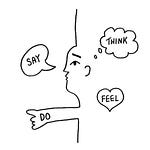Empathy
In the late 1990s and early 2000s, doctors were urged to treat pain as the “fifth vital sign.” (American Pain Society, 1996).
Seriously, this was a very real and an influential organization. It shuttered in 2019 - after facing lawsuits alleging it colluded with opioid manufacturers to promote opioid use - i.e. allegations of being in cahoots with Purdue Pharma.
Doctors, motivated by empathy and pressured by institutional policies, began prescribing opioids at unprecedented rates, often without fully understanding the risks of addiction.
If my patient is in pain, I must do everything to relieve it.
There was a lack of evidence for long-term opioid use in chronic pain. According to the CDC, opioid prescriptions quadrupled between 1999 and 2010, but there was no overall change in the amount of pain Americans reported.
Incentives
Hospitals began to be evaluated (and reimbursed) based on patient satisfaction scores, especially regarding pain management. Empathy for patients’ suffering became a professional mandate.
This well-intentioned empathy, untempered by critical inquiry, contributed to the opioid epidemic.
Millions became addicted, and overdose deaths soared.
Curiosity + Intelligence
It took a new wave of medical professionals and researchers to ask: “Why are we seeing so many opioid prescriptions? What are the long-term effects? Are there alternative pain management strategies?” By investigating the root causes and questioning the status quo, they uncovered the role of pharmaceutical marketing, flawed pain assessment, and the lack of non-opioid treatments. This led to new guidelines, better education, and a more nuanced approach to pain.
An approach that balances compassion with evidence.
Empathy is everywhere. From corporate mission statements to self-help books, it’s become the go-to virtue for anyone talking about leadership, relationships, or personal growth.
The word is so overused it’s starting to lose its meaning.
We’re told to “lead with empathy,” “parent with empathy,” and “solve problems with empathy.”
Is empathy really the magic bullet it’s made out to be?
Is it ok to conflate feeling for understanding?
In the mid-1990s, psychologist Daniel Goleman published Emotional Intelligence, introducing the concept of EQ (Emotional Quotient) as a counterweight to IQ.
Goleman says that understanding and managing emotions is just as important as raw intelligence. The business world, always hungry for the next management fad, ate it up. Suddenly, empathy was the new gold standard for leadership and success.
Fact-check:
Daniel Goleman’s Emotional Intelligence (1995) did popularize EQ, but the term was coined earlier by Peter Salovey and John D. Mayer (1990). Goleman’s book, however, made it mainstream.
Empathy is a component of EQ, but not the whole story—self-awareness, self-regulation, motivation, and social skills are also key.
A Cop-out?
Here’s where things get dicey. Empathy is often used as a shield / excuse to avoid hard questions or uncomfortable truths.
Let’s just be empathetic
can become code for
Let’s not challenge anyone’s ideas
or
Let’s not dig too deep
It’s a way to prioritize comfort over clarity, and feelings over facts.
What if we leaned into curiosity?
What if we asked,
Why does this person feel this way?
or
What’s really going on here?
Let’s investigate not just feel. Let’s analyze so we can understand more deeply and with fewer lazy assumptions, justified by feelings.
High cognitive empathy (understanding others’ perspectives) is more predictive of effective leadership than affective empathy (feeling others’ emotions).












